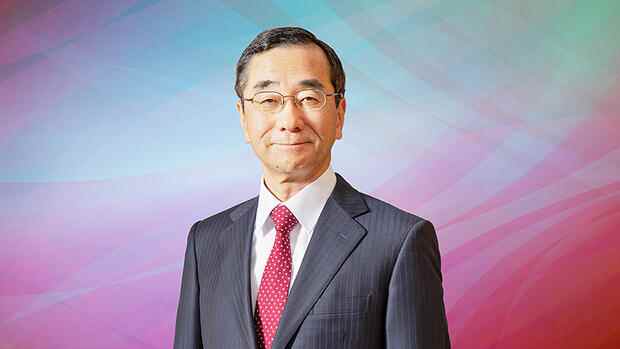The corona pandemic and the Russian attack on Ukraine are overshadowing the global economy with serious disruptions to supply chains and sharply rising energy and food prices. At the same time, it is important to achieve global goals such as the digital transformation of society and the economy as well as carbon neutrality.
We live in a time of great change. Every state and every company must use the situation now to create the basis for future growth. The Japanese word for crisis is “kiki” and consists of two characters: “danger” and “opportunity/opportunity”. It is therefore important to use the crises as an opportunity.
In the Indo-Pacific region, efforts are being made to reorganize. The alliance of Japan, the USA, Australia and India (QUAD) or the Indo-Pacific Economic Framework (IPEF) agreement initiated by US President Biden are examples of this.
The economy in the region will continue to develop and grow in the long term. However, the framework conditions are also changing rapidly here – supply chains are being restructured and a political reassessment of some countries by the West is threatening economic security.
Top jobs of the day
Find the best jobs now and
be notified by email.
Germany is also showing increasing interest in the region, as evidenced by the “Guidelines on the Indo-Pacific” adopted by the federal government in 2020.
The RCEP free trade agreement, which came into force in January 2022 and which Japan concluded with the ASEAN countries China, South Korea, Australia and New Zealand, marks an important milestone. It is one of the world’s largest free trade agreements and promotes the development of a free and fair trading system and resilient value chains. If the member states consistently implement the agreed rules, it will bring further growth to the region.
The IPEF is a US-proposed multilateral economic initiative and occupies a key position in the US government’s Indo-Pacific strategy. Here, Japan should act as a mediator between the participating countries, so that the initiative pays attention to the actual situation and needs in Asia and can push growth in the region.
Germany and Japan share the same values
In order to overcome the various current difficulties, global supply chains, which have so far been heavily dependent on certain countries, should become more diversified and resilient.
In order to achieve the goal of carbon neutrality, we need new technologies. The speed of innovation plays an important role in this. In order to become carbon neutral, it is imperative that countries with shared values, such as Japan and Germany, work more closely together.
The Japanese government wants to become carbon neutral by 2050 and has adopted the Green Growth Strategy. The focus is on measures to increase energy efficiency, the expansion of renewable energies and the use of green hydrogen and green ammonia.
As a pioneer of renewable energy, Germany can make an important contribution here. Many medium-sized companies and start-ups in Germany already have many years of experience with green technologies and can teach their Japanese partners how to use wind, sun or biomass efficiently.
>>Read here: The World After: How the Ukraine War Redistributed Power and Wealth
The use of green Hydrogen encompasses various technology areas such as electrolysis, fuel cells, materials, transport, power generation and also mobility. In some areas Japanese companies are leaders, but in others the Germans are ahead. If they cooperate and intensify cooperation, the widespread use of green hydrogen can be realized more quickly.
During his visit to Japan last spring, Chancellor Scholz visited a hydrogen plant near Tokyo. According to the Federal Chancellor, such projects could be an international model for the development of cross-border supply chains. Hydrogen is certainly one of the areas where Germany and Japan, as leading technology nations, can work together in the energy transition.
High expectations of German and Japanese start-ups
German-Japanese cooperation is not just limited to large companies. As in Germany, 99 percent of companies in Japan are medium-sized.
With outstanding technologies and products, small and medium-sized companies open up new business areas. German medium-sized companies with know-how in the area of Industry 4.0 are already active in Japan in the digitization of production.
EVO, a medium-sized company from southern Germany, has a branch in the prefecture of Ibaraki and supplies Industry 4.0 software to medium-sized companies in Japan. In the field of air mobility, German start-ups are attracting a lot of attention with demonstration tests. Volocopter, a start-up from southern Germany, has entered into a cooperation with the airline Japan Airlines (JAL) to open up and launch the market.
In a joint project with the airline All Nippon Airways (ANA), the drone developer and manufacturer Wingcopter from Hesse wants to use its drones to transport medicines and everyday needs to remote mountain regions or islands.
We are currently noticing an increasing need for cooperation on both sides.
At their meeting in spring, the heads of state of Japan and Germany agreed on regular government consultations with the participation of other ministers in order to intensify cooperation on a broad basis.
The first round is scheduled to take place next year, when Japan takes over the G7 presidency after Germany. Relations will deepen not only bilaterally, but also within the framework of the G7.
For Germany and Japan, this offers a unique opportunity to expand their strategic partnership in the looming change of era.
The author:
Nobuhiko Sasaki is Chairman and CEO of the Japan External Trade Organization, comparable to the German Chamber of Foreign Trade.
More: Europe and Japan join forces in digitization
